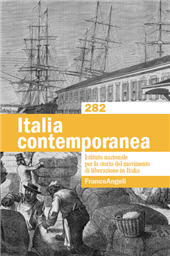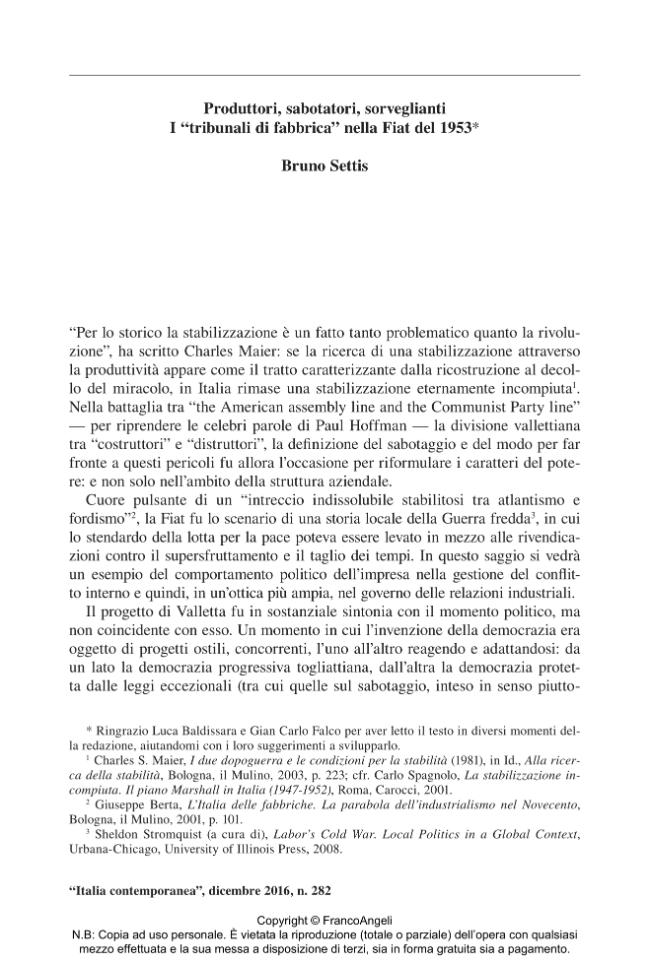Produttori, sabotatori, sorveglianti I tribunali di fabbrica nella Fiat del 1953
114-140 p.
Il saggio offre un esempio di "storia locale di Guerra fredda": i cosiddetti "tribunali di fabbrica" alla Fiat che, nel 1953, furono creati dalla direzione aziendale per riaffermare la propria potestà disciplinare (come essa stessa si espresse, in quello stesso anno, in una lettera a Giovanni Gronchi, Presidente della Camera dei Deputati) sulla forza lavoro e la tradizionale gerarchia sul processo di produzione. Gli "imputati" erano militanti comunisti e sindacali. Sulla base di fonti di polizia, d'impresa e della Fiom, l'autore illustra la ricostruzione del servizio di sorveglianza alla Fiat e lo svolgimento dei "tribunali di fabbrica", che diventarono un caso politico a Torino e a Roma. Su questa base, si ritorna sui temi del ruolo del conflitto industriale della debolezza dello stato italiano di fronte ai grandi poteri privati. [Testo dell'editore].
The essay provides an insight on a "local history of the Cold War": the so-called "factory courts" at Fiat which, in 1953, where set-up by management to reassert its disciplinary power (as it wrote in a letter to the President of the Chamber of Deputies, Giovanni Gronchi later that year) on the workforce and the traditional hierarchy on the labour process. The "defendants" were Communist militants and unionists (belonging to the Italian Federation of Metal Workers, Fiom). Drawing upon police, business and union sources, the author illustrates the reconstruction of the system of private guards and strikebreakers at Fiat and the events of the "factory courts", which became a political question in Turin and Rome. The role of industrial conflict and the weakness of the Italian State in front of capitalist private powers are therefore discussed. [Publisher's Text].
Is part of
Italia contemporanea : 282, 3, 2016-
Articles from the same issue (available individually)
-
Information
ISSN: 2036-4555
DISCIPLINES
KEYWORDS
- Guerra fredda, sorveglianti, tribunali di fabbrica, Fiom, direzione aziendale
- Cold War, Private Guards, Factory Courts, Fiom, Management



